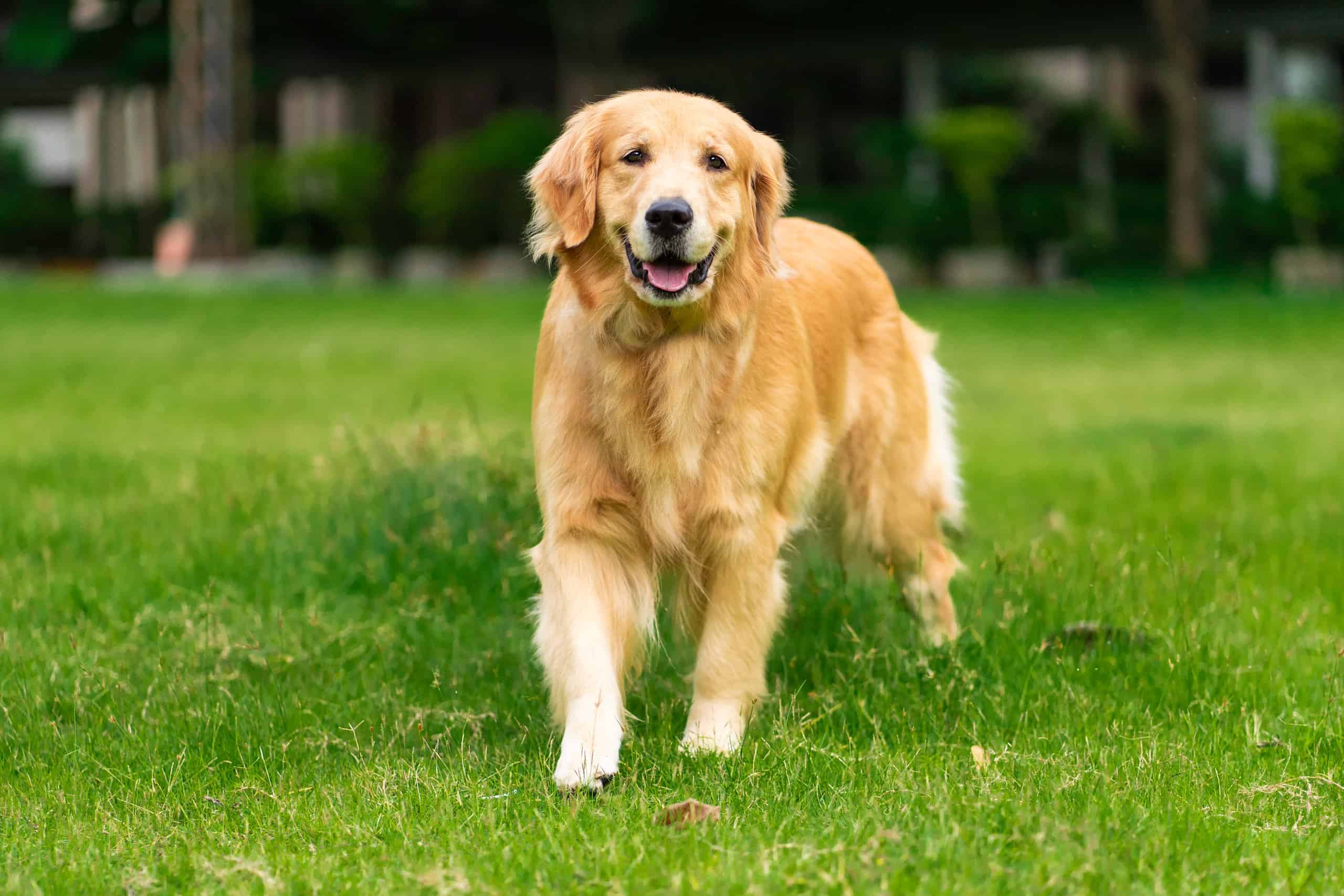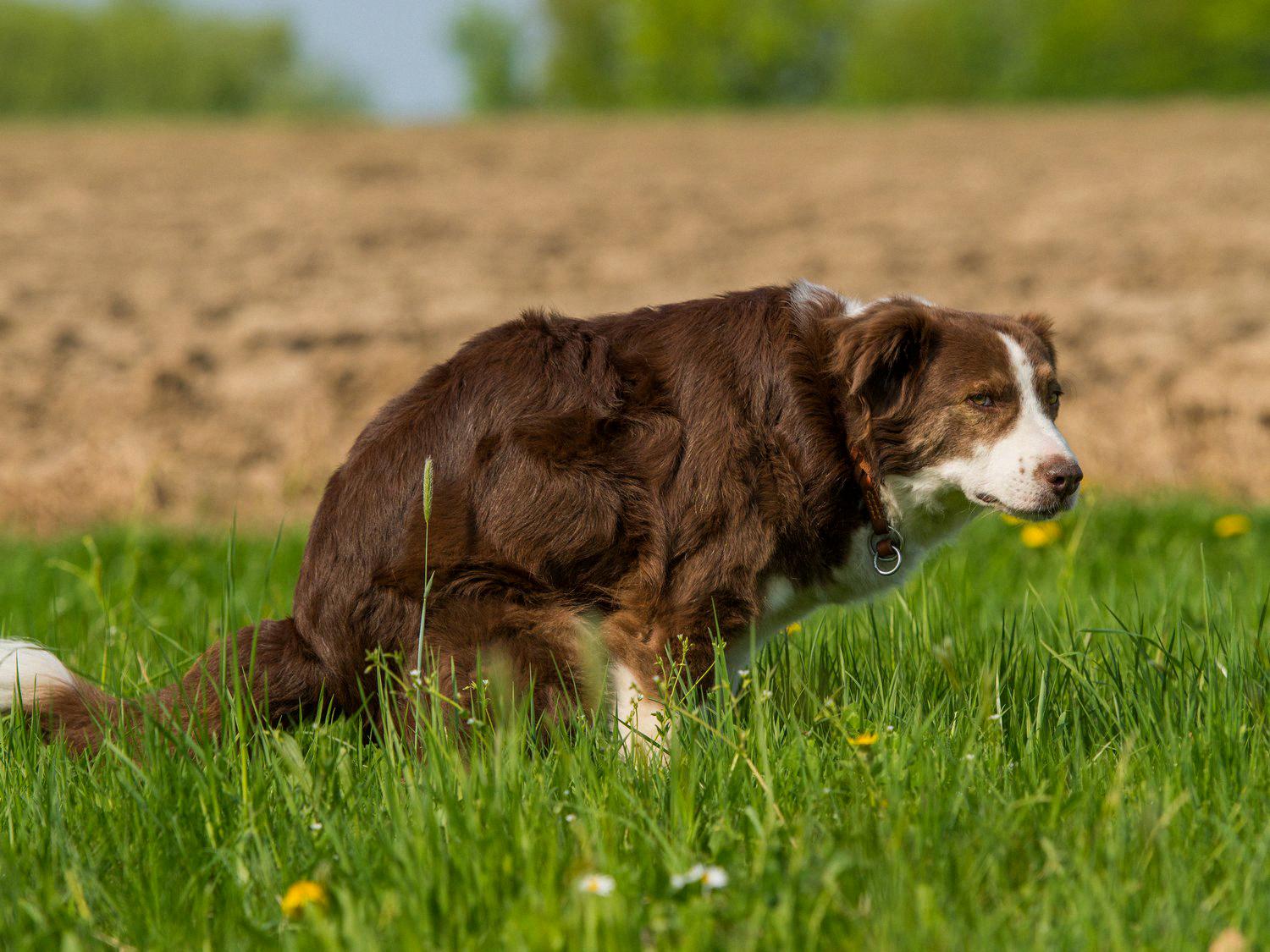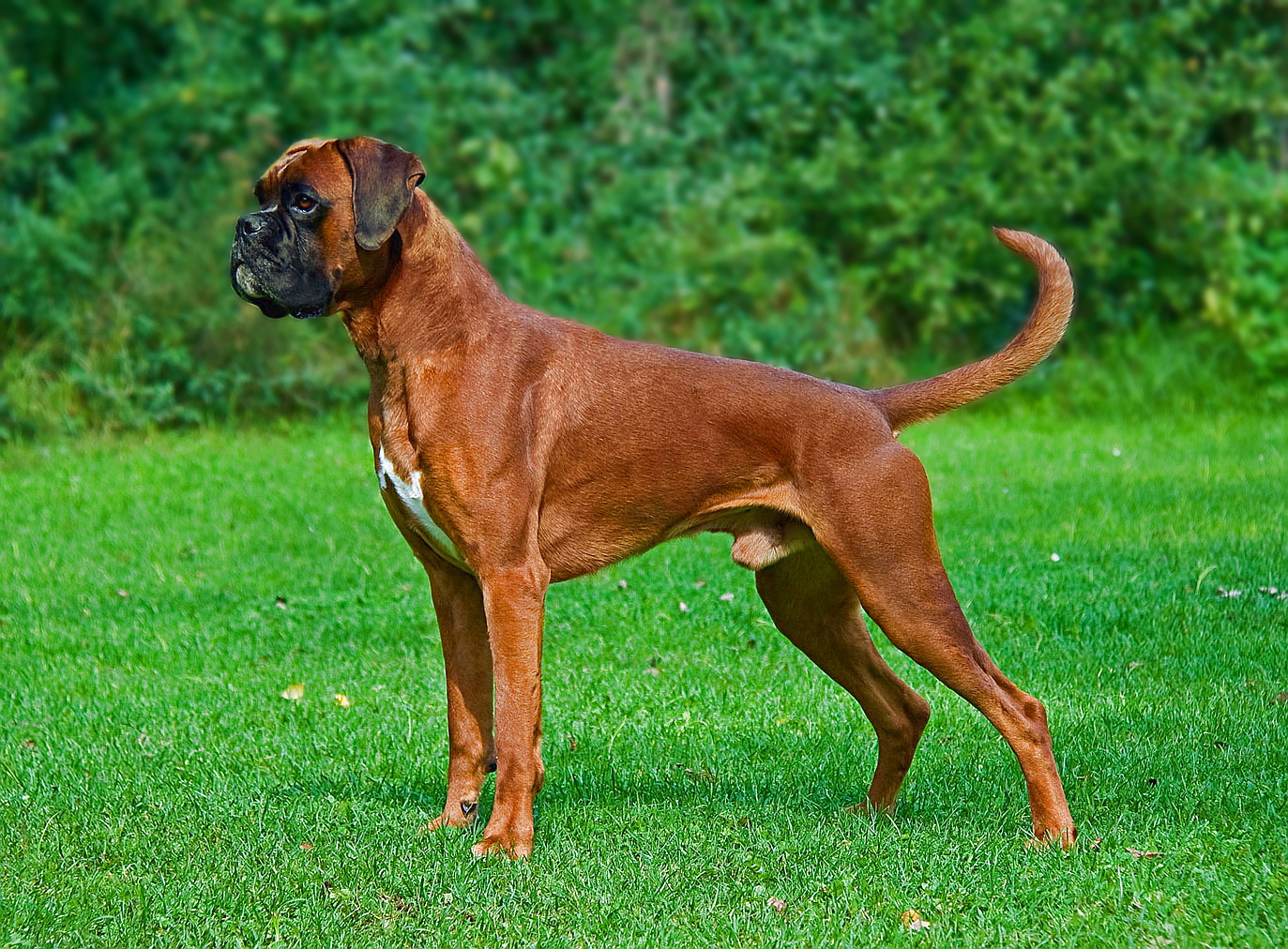

FAQs
What Dogs Fart The Most
Modified: August 5, 2023
Find answers to general questions about dogs farting. Learn about the dog breeds that tend to fart the most and how to manage flatulence in dogs.
(Many of the links in this article redirect to a specific reviewed product. Your purchase of these products through affiliate links helps to generate commission for Under-tec.com, at no extra cost. Learn more)
Table of Contents
Introduction
Have you ever had the unpleasant experience of being in the same room as a gassy dog? The pungent odor and the audible sounds can leave you feeling both amused and slightly repelled. But why do dogs fart? And what makes some dogs fart more than others?
Flatulence, the release of gas from the digestive system, is a normal bodily function in both humans and animals. Dogs, being carnivores, have a unique digestive system that can sometimes result in excessive flatulence. While occasional farting is considered normal, frequent and foul-smelling gas can be a cause for concern.
Understanding the factors that contribute to dogs’ flatulence can help us better manage and minimize this odoriferous issue. In this article, we will explore the various factors that can influence the amount of gas produced by dogs, including breed predispositions, dietary factors, and underlying health conditions. Additionally, we will provide some helpful tips on how to reduce and prevent excessive dog flatulence.
So, if you are a dog owner tired of dealing with your furry friend’s frequent gas emissions, keep reading to discover why some dogs fart more than others, and what you can do to address this gassy situation.
Factors Affecting Dogs’ Flatulence
Several factors can contribute to the frequency and intensity of a dog’s flatulence. These factors vary from breed differences to dietary choices and health conditions. Let’s take a closer look at each one:
- Breed Predispositions: It’s important to note that some dog breeds are genetically more prone to flatulence than others. Brachycephalic breeds, such as Bulldogs and Pugs, have shorter muzzles, which can lead to swallowing more air while eating or drinking. Additionally, large breed dogs, such as the Great Dane or St. Bernard, tend to produce more gas due to their larger size and metabolism.
- Dietary Factors: The food a dog consumes plays a significant role in its digestive health. Certain food ingredients, such as beans, dairy products, and high-fat foods, can be difficult for dogs to digest, resulting in increased gas production. Additionally, switching a dog’s diet abruptly or feeding it low-quality food can disrupt the balance of its gut flora, causing digestive issues and flatulence.
- Chewing Habits: Dogs that are fast eaters or tend to gulp their food without proper chewing are more likely to swallow air, leading to increased flatulence. Slow feeders or using puzzle toys can help promote slower eating and reduce the amount of air swallowed.
- Health Conditions: Underlying health conditions can also contribute to excessive flatulence in dogs. Gastrointestinal issues such as gastrointestinal infections, inflammatory bowel disease (IBD), or gastrointestinal blockage can cause gas build-up and frequent flatulence. In addition, food allergies or sensitivities can trigger digestive disturbances and increase gas production.
- Intestinal Parasites: Infestation with intestinal parasites, such as worms or Giardia, can disrupt the normal digestive process and result in excessive gas production. Regular deworming and preventive measures can help mitigate this issue.
It’s worth noting that while some dogs naturally produce more gas due to their unique physiology or certain breeds, frequent or excessive flatulence should still be evaluated by a veterinarian to rule out any underlying health issues. By understanding these factors that contribute to flatulence, dog owners can take proactive steps to minimize gas production and improve their furry friends’ overall digestive health.
Breeds Prone to Flatulence
It’s no secret that some dog breeds are more prone to flatulence than others. While every dog can release gas occasionally, certain breeds have characteristics that make them more likely to experience excessive or persistent farting. Let’s take a look at some of these breeds:
- Bulldog: Bulldogs are known for their flat faces and stocky bodies. Unfortunately, these adorable features contribute to their predisposition to flatulence. Their short snouts, called brachycephalic features, can lead to swallowing more air during meals, resulting in increased gas production.
- Pug: Similar to Bulldogs, Pugs also have brachycephalic features that make them prone to excessive flatulence. Their short muzzles can cause them to gulp air while eating or drinking, leading to gas build-up.
- Boxer: Boxers are a muscular breed with a deep chest, which can make them more susceptible to flatulence. Their powerful digestive system and a tendency to eat quickly can result in excess gas production.
- Great Dane: As one of the largest dog breeds, Great Danes naturally produce more gas due to their size and metabolism. The combination of their fast growth rate and large food intake can contribute to increased flatulence.
- Labrador Retriever: Labs are known for their hearty appetites and tendency to gobble down food quickly. Their enthusiastic eating can cause them to swallow air, leading to an increased likelihood of flatulence.
- German Shepherd: German Shepherds have sensitive digestive systems, and certain dietary factors can lead to gas production. Additionally, they are prone to gastrointestinal issues, such as bloating and intestinal discomfort, which can contribute to flatulence.
While these breeds may be more susceptible to flatulence, it’s important to remember that every individual dog is unique. Some dogs within these breeds may produce less gas, while others may experience more pronounced flatulence. Proper diet, feeding techniques, and regular veterinary care can help manage excessive gas in these breeds and ensure their overall digestive health.
Dietary Factors
The food your dog consumes has a significant impact on its digestive system and can greatly affect its flatulence levels. Certain dietary factors can contribute to increased gas production in dogs. Let’s explore some of these factors:
- High-Fiber Foods: While fiber is essential for a healthy digestive system in dogs, excessive amounts can lead to increased flatulence. High-fiber foods, such as beans, lentils, and certain vegetables like broccoli or cabbage, can ferment in the gut and produce gas. It’s important to provide a balanced amount of fiber in your dog’s diet to avoid excessive gas production.
- Dairy Products: Just like some humans, many dogs are lactose intolerant, meaning they lack the enzyme necessary to break down lactose in dairy products. Feeding your dog milk, cheese, or ice cream can result in digestive upset and increased flatulence. Avoid giving your dog dairy products if you notice excessive gas or other signs of discomfort.
- Table Scraps: Sharing your food with your furry friend can be tempting, but it’s important to be mindful of the ingredients. Certain human foods, such as fatty meats, fried foods, or spicy dishes, can be difficult for dogs to digest and may culminate in flatulence. Limit table scraps and opt for dog-friendly treats instead.
- Low-Quality Dog Food: The quality of the dog food you choose can significantly impact your dog’s digestive health. Cheap, low-quality dog foods often contain fillers, artificial ingredients, and excessive amounts of grains or carbohydrates, which can be hard for dogs to digest. Opt for high-quality dog food that uses wholesome ingredients and is easily digestible for your pup.
- Dietary Changes: Abrupt changes in your dog’s diet can disrupt its digestive system and lead to increased gas production. If you decide to switch your dog’s food, do it gradually over a week or two, mixing the new food with the old in increasing proportions. This gradual transition allows your dog’s digestive system to adapt to the changes and reduces the likelihood of excessive flatulence.
Remember that each dog is unique, and what works for one may not work for another. Pay attention to your dog’s individual response to different foods and make necessary adjustments to their diet as needed. If you notice persistent or severe flatulence, it’s best to consult with your veterinarian for further evaluation and guidance on the right diet for your furry friend.
Health Conditions Leading to Increased Flatulence
While occasional flatulence is normal in dogs, persistent or excessive gas can be a sign of underlying health issues. Several health conditions can contribute to increased flatulence in dogs. Let’s explore some of the common conditions:
- Gastrointestinal Infections: Infections in the gastrointestinal tract, such as stomach viruses or bacterial overgrowth, can disrupt the normal digestion process and lead to increased gas production. Symptoms may include diarrhea, abdominal discomfort, and foul-smelling flatulence.
- Inflammatory Bowel Disease (IBD): IBD is a chronic condition characterized by inflammation in the gastrointestinal tract. This inflammation can affect the proper digestion and absorption of food, leading to excessive flatulence along with symptoms like diarrhea, vomiting, and weight loss.
- Gastrointestinal Blockage: When a foreign object or a mass blocks the gastrointestinal tract, it can disrupt the normal flow of digestion. This obstruction can cause gas to build up, resulting in excessive flatulence. Other symptoms may include abdominal pain, vomiting, and changes in bowel movements.
- Food Allergies or Sensitivities: Dogs can develop allergies or sensitivities to certain ingredients in their food, leading to digestive disturbances and flatulence. Common allergens include grains, beef, chicken, and dairy products. If your dog experiences persistent gas along with other signs like itching, skin rashes, or ear infections, it may indicate a food allergy.
- Pancreatic Insufficiency: The pancreas plays a crucial role in the digestion of food by producing enzymes. Pancreatic insufficiency occurs when the pancreas fails to produce enough enzymes, leading to poor digestion and malabsorption. This can result in excessive flatulence, along with weight loss, greasy stools, and nutrient deficiencies.
If you notice persistent or severe flatulence in your dog, it’s essential to consult with your veterinarian. They will be able to evaluate your dog’s symptoms, perform necessary tests, and determine the underlying cause. Treatment options may include dietary changes, medications to manage inflammation, or addressing underlying infections.
Remember, addressing the underlying health condition is crucial in managing excessive flatulence in dogs. A proper diagnosis and treatment plan from your veterinarian can help alleviate your dog’s discomfort and improve their overall digestive health.
Tips to Minimize Dog Flatulence
If your dog is suffering from excessive flatulence, there are several steps you can take to help minimize and manage this gassy issue. Here are some helpful tips:
- Feed a High-Quality Diet: Providing your dog with a well-balanced, high-quality diet can greatly improve digestive health and reduce flatulence. Look for dog food that contains easily digestible ingredients, avoids fillers or artificial additives, and is appropriate for your dog’s unique dietary needs.
- Avoid Known Trigger Foods: Take note of which specific foods or ingredients seem to trigger excessive flatulence in your dog. Avoid giving them these foods and opt for alternative options that are easier for them to digest.
- Feed Smaller, Frequent Meals: Instead of feeding one or two large meals, try dividing your dog’s daily food allowance into smaller, more frequent meals. This can help prevent them from overeating or swallowing excessive air while eating, reducing the chances of flatulence.
- Promote Slower Eating: Dogs that eat too quickly are more prone to swallowing air, which can contribute to flatulence. There are various methods to promote slower eating, such as using puzzle toys, slow feeders, or feeding meals in smaller portions at a time.
- Keep Your Dog Hydrated: Proper hydration is essential for maintaining a healthy digestive system. Ensure your dog has access to fresh water at all times to support optimal digestion and prevent constipation, which can contribute to flatulence.
- Exercise Regularly: Regular exercise helps keep your dog’s digestive system in good working order by promoting healthy bowel movements and reducing the likelihood of gastrointestinal issues that can lead to flatulence.
- Consider Probiotics: Probiotics are beneficial bacteria that can support a healthy gut microbiome and aid in digestion. Consult with your veterinarian to determine if probiotic supplements or foods with added probiotics are appropriate for your dog.
- Manage Stress: Stress and anxiety can impact a dog’s digestive health. Minimize environmental stressors, provide a safe and calm living environment, and consider using relaxation techniques, such as massage or aromatherapy, to help reduce stress in your dog.
- Regular Veterinary Check-ups: Regular visits to your veterinarian will ensure your dog’s overall health and address any underlying issues that may contribute to flatulence. Your vet can provide personalized advice and recommend appropriate dietary changes or treatments.
By implementing these tips, you can help minimize flatulence and improve your dog’s digestive health. However, if excessive flatulence persists or is accompanied by other concerning symptoms, it’s important to consult with your veterinarian for a proper diagnosis and specific treatment recommendations tailored to your dog’s needs.
Conclusion
Flatulence is a common occurrence in dogs, but excessive or persistent gas can be a cause for concern. Understanding the factors that contribute to dog flatulence and implementing appropriate measures can help minimize this unpleasant issue and improve your dog’s digestive health.
We have explored several factors that can affect a dog’s flatulence, including breed predispositions, dietary factors, and underlying health conditions. Certain breeds, such as Bulldogs and Pugs, are more prone to flatulence due to their brachycephalic features. Dietary factors, such as high-fiber foods and dairy products, can also increase gas production. Health conditions like gastrointestinal infections, IBD, and food allergies can contribute to excessive flatulence as well.
To minimize flatulence, it is crucial to feed your dog a high-quality diet, avoid trigger foods, promote slower eating, and maintain proper hydration. Regular exercise, stress management, and probiotics can also help support a healthy digestive system. Remember to consult with your veterinarian for personalized advice and recommendations based on your dog’s specific needs.
By implementing these tips and staying attentive to your dog’s individual needs, you can help reduce flatulence and promote better overall digestive health for your beloved furry companion.










